| Linda M. Woolf, Ph.D. | Associate Professor of Psychology, Webster University |
| Previous Recommended Books of the Month |
Recommended Book of the Month - Books for Spring 2002
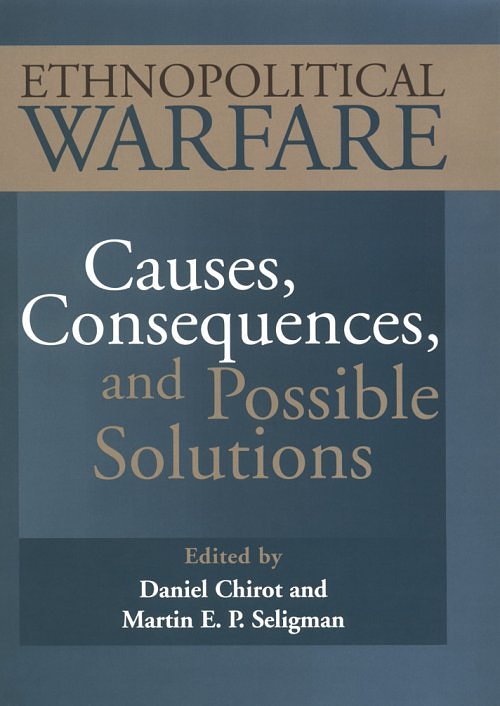 |
- Ethnopolitical Warfare : Causes, Consequences, and Possible Solutions (2001) by Daniel Chirot (Editor), Martin E. P. Seligman (Editor)
- To order: Amazon Books
- Book description from APA: Why does ethnopolitical conflict sometimes lead to genocide and other times to peace? In this volume, political scientists, psychologists, sociologists, and historians examine over a dozen international cases to try to understand what causes a society's ethnic conflicts to escalate or deescalate. This unique book contains cogent critiques of the political and historical antecedents to conflict around the world, combining them with psychological analyses of group identity and intergroup conflict.
|
| In examining the escalation of ethnic conflict, the authors highlight the critical role of group identification. How group identification becomes enmeshed with threatened economic resources, violent political subcultures, and media manipulation of collective fear is stressed. The lessons from the histories of specific countries are given cogent review: Why is Tanzania a rare model of ethnic peace in Africa while its neighbor Rwanda houses the worst case of ethnic warfare on the continent? How can South Africa's history provide a positive example of the resolution of ethnopolitical tensions? This book illustrates the promise that an interdisciplinary approach has to offer in preventing further genocide and ethnic warfare in the 21st century. |
- At the Hands of Persons Unknown : The Lynching of Black America (2002) by Philip Dray
- To order: Amazon Books
- Book Description from the Amazon.com: Lynching, the extrajudicial punishment inflicted by vigilantes and mobs on often innocent victims, was far from an unusual occurrence, though some historians have depicted it as such. Instead, writes Philip Dray, lynching was part of a "systematized reign of terror that was used to maintain the power whites had over blacks." Drawing on records held at the Tuskegee Institute, Dray argues that from 1882 until 1952, not a single year passed without a recorded lynching somewhere in the United States, most often in the Deep South and Mississippi Delta regions. This violent "justice," meted out "at the hands of persons unknown" (with, therefore, no possibility of attaching guilt to the perpetrators, though, as Dray points out, such seemingly spontaneous events required organization and planning) held African American communities in terror and was one force behind the exodus of black southerners to the north in the late 19th and early 20th centuries. Dray's extraordinary study reveals a pattern of crime against humanity, one that, he writes, diminished gradually for various reasons, not least of them the work of reformers and ordinary citizens "who knew we were too good to be a nation of lynchers." -- Gregory McNamee
|
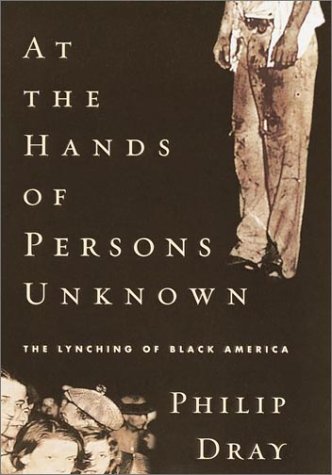 |
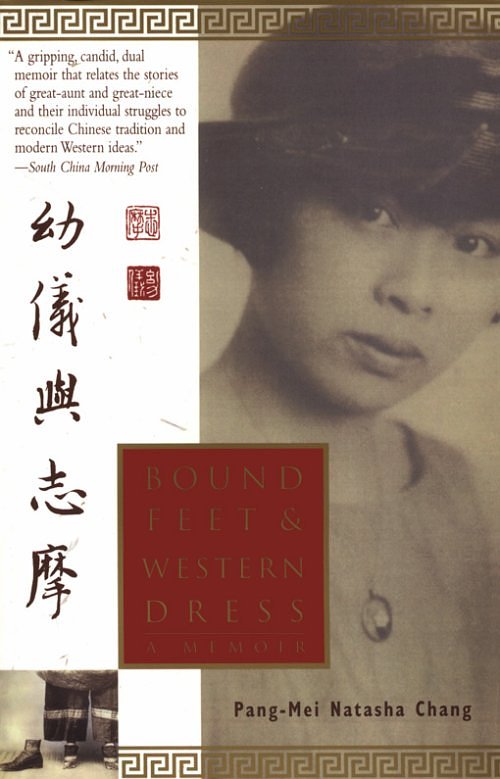 |
- Bound Feet & Western Dress(1999) by Pang-Mei Natasha Chang
- To order: Amazon Books
- Book Description from Amazon.com: When Chang Yu-I was three her mother tried to bind her feet. But the child's
cries so tormented her brother that he convinced their mother to stop. This break
with convention foreshadowed the extraordinary life Yu-i was to lead. After
following her husband, poet Hsu Chi-Mo, a noted philanderer, to Oxford, she
made history by becoming the first Chinese woman to have a western-style
divorce at age 22. Determined to make her own way, she moved to America and
served in a series of prestigious positions, including president of a bank. Written
by Yu-i's great niece, Pang-Mei Natasha Chang, Bound Feet and Western
Dress chronicles the life of this exceptional woman.
|
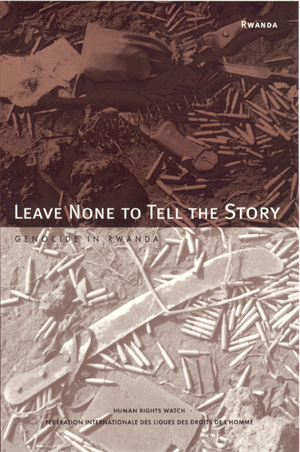 |
- Leave None to Tell the Story: Genocide in Rwanda (2001) by Human Rights Watch
- To order: Human Rights Watch
- Book description from HRW: In 1994 a small elite chose genocide to keep power in Rwanda. They usedstate resources
and authority to incite--or force--tens of thousands of Rwandans to kill the Tutsi minority.
Within one hundred days, they slaughtered more thanhalf a million people, three quarters of
the Tutsi of Rwanda. The major international actors, France, the U.S., Belgium, and the U.N.,
failed to heed the warnings of coming disaster and refused to recognize the genocide when
it began. They withdrew the troops that could have saved lives and made littleprotest against
the genocide, lest condemnation lead to calls for action. This study, based on Rwandan
government records, dissects the deceptive discourse of genocide and shows how ordinary
administrative structures and practices were turned into mechanisms of murder. It describes
opposition to the killing campaign and how it was broken. In the words of survivors, it relates
how they resisted and escaped. Using diplomatic and court documents, the study details the
transformation of international indifference into tardy criticism. By showing how even feeble
censure caused changes in the genocidal program, the study suggest what might have been
the result had the world promptly and firmly cried "Never Again." .
|
- Personal History (2002) by Katharine Graham
- To order: Amazon Books
- Book Description from the Amazon.com: A remarkable book by an even more remarkable woman, Personal History recounts a life that would seem implausible in a work of fiction. Now 79, Katharine Graham, née Meyer, grew up in a world of high privilege among the New York and Washington aristocracy. She spent her first two adult decades as the wife of Phil Graham, who had taken over the Washington Post from Katharine's father. But in August 1963, Phil's growing mental problems culminated in his suicide. A month later, Katharine took over the company--and, with virtually no prior training, built it into one of the nation's most respected news organizations. In graceful, intelligent, and bluntly honest prose, Graham provides an inside look at key events of the last few decades and offers insightful firsthand portraits of dozens of prominent figures. The most fascinating portrait, though, may be the self-portrait drawn indirectly by the author.
|
 |
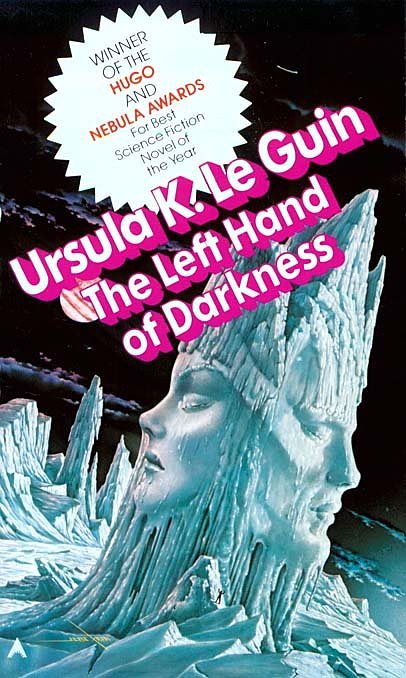 |
- The Left Hand of Darkness(1999) by Ursula K. Le Guin
- To order: Amazon Books
- Book Description from Amazon.com: Genly Ai is an emissary from the human galaxy to Winter, a lost, stray world. His mission is
to bring the planet back into the fold of an evolving galactic civilization, but to do so he
must bridge the gulf between his own culture and prejudices and those that he encounters.
On a planet where people are of no gender--or both--this is a broad gulf indeed. The inventiveness and delicacy with which Le Guin portrays her alien world are not only unusual and inspiring, they are fundamental to almost all decent science fiction that has been written since. In fact, reading Le Guin again may cause the eye to narrow somewhat disapprovingly at the younger generation: what new ground are they breaking that is not already explored here with greater skill and acumen? It cannot be said, however, that this is a rollicking good story. Le Guin takes a lot of time to explore her characters, the world of her creation, and the philosophical themes that arise. -- L. Blunt
Jackson
|
Recommended Book of the Month - Books for Fall 2001
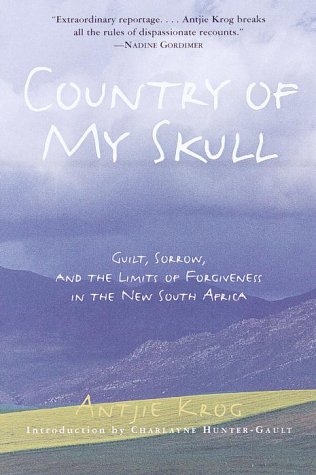 |
- Country of My Skull : Guilt, Sorrow, and the Limits of Forgiveness in the New South Africa (2000) by Antjie Krog
- To order: Amazon Books
- Book description from Amazon.com: In the year following South Africa's first democratic elections, the Truth and Reconciliation Commission was established to investigate human rights abuses committed under the apartheid regime. Presided over by God's own diplomat, Archbishop Desmond Tutu, the first hearings of the commission were held in April 1996. During the following two years of hearings, South Africans were daily exposed to revelations and public testimony about their traumatic past, and--like the world that looked on--continued to discover that the relationship between truth and reconciliation is far more complex than they had ever imagined.
|
Antjie Krog, a prominent South African poet and journalist, led the South African Broadcasting Corporation team that for two years reported daily on the hearings. Extreme forms of torture, abuse, and state violence were the daily fare of the Truth Commission. Many of those involved with its proceedings, including Krog herself, suffered personal stresses--ill health, mental breakdown, dissolution of relationships--in the face of both the relentless onslaught of the truth and the continuing subterfuges of unrelenting perpetrators. Like the Truth Commission itself, Country of My Skull gives central prominence to the power of the testimony of the victims, combining a journalist's reportage skills with the poet's ability to give voice to stories previously unheard. -- Rachel Holmes
- First They Killed My Father : A Daughter of Cambodia Remembers (2001) by Loung Ung
- To order: Amazon Books
- Book Description from the Amazon.com: Written in the present tense, First They Killed My Father will put you right in the midst of the action--action you'll wish had never happened. It's a tough read, but definitely a worthwhile one, and the author's personality and strength shine through on every page. Covering the years from 1975 to 1979, the story moves from the deaths of multiple family members to the forced separation of the survivors, leading ultimately to the reuniting of much of the family, followed by marriages and immigrations. The brutality seems unending--beatings, starvation, attempted rape, mental cruelty--and yet the narrator (a young
girl) never stops fighting for escape and survival. Sad and courageous, her life and the lives of her young siblings provide quite a powerful example of how war can so deeply affect children--especially a war in which they are trained to be an integral part of the armed forces. For anyone interested in Cambodia's recent history, this book shares a valuable personal view of events. -- Jill Lightner
|
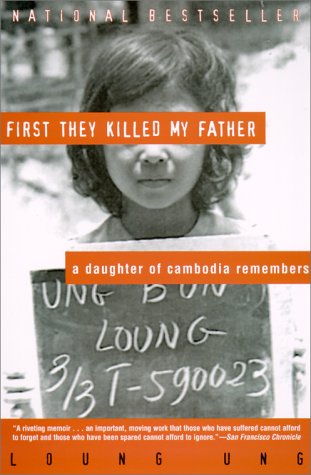 |
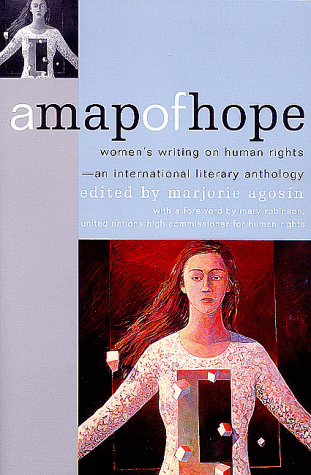 |
- A Map of Hope : Women's Writing on Human Rights : An International Literary Anthology(1999) by Marjorie Agosin
- To order: Amazon Books
- Book Description from Booklist: In communities where interest in global human rights and Amnesty International is strong, this collection of women's prose and poetry about the struggle to maintain those rights should have appeal. Wellesley professor Agosin recently received the United Nations Leadership Award for Human Rights; a portion of the book's profits will go to Amnesty International. Agosin's selections cover war, imprisonment and censorship, childhood, refugees and exiles, domestic and political violence, and resistance and refusal. Some authors' names will be familiar to many readers--e.g., Marguerite Duras, Christa Wolf, June Jordan, Barbara Kingsolver, Anna Akhmatova, Aung San Suu Kyi, Leslie Marmon Silko, Adrienne Rich, Nawal El Sa'adawi, Muriel Rukeyser, Grace Paley, Petra Kelly, Nadine Gordimer, and Isabel Allende--but most of these authors are relatively unknown, speaking from the heart to "bear witness to human tragedy" and to urge those who read their words to take action. A difficult read, but essential to make the 50-year-old United Nations Declaration of Human Rights a reality. Mary Carroll
|
Recommended Book of the Month - Books for Fall 2000
 |
- The Rape of Nanking : The Forgotten Holocaust of World War II (1998) by Iris Chang
- To order: Amazon Books
- Book description from Amazon.com: China has endured much hardship in its history, as Iris Chang shows in her ably researched The Rape of Nanking, a book that recounts the horrible events in that eastern Chinese city under Japanese occupation in the late 1930s. Nanking, she writes, served as a kind of laboratory in which Japanese soldiers were taught to slaughter unarmed, unresisting civilians, as they would later do throughout Asia. Likening their victims to insects and animals, the Japanese commanders orchestrated a campaign in which several hundred thousand--no one is sure just how many--Chinese soldiers and noncombatants alike were killed. Chang turns up an unlikely hero in German businessman John Rabe, a devoted member of the Nazi party who importuned Adolf Hitler to intervene and stop the slaughter, and who personally saved the lives of countless residents of Nanking. She also suggests that the Japanese government pay reparations and apologize for its army's horrific acts of 60 years ago.
|
- Burma : Insurgency and the Politics of Ethnicity Martin Smith
- To order: Amazon Books
- Book Description from the publisher, Zed Books: Burma remains a land in deep crisis. The popular uprising of 1988 swept away 26 years of military rule under General Ne Win in name only. The National League for Democracy of Daw Aung San Suu Kyi won a landslide victory in the 1990 election. But, as this book relates, the military remains in control and the future of Burma looks more problematic than ever.
Through rare access to a diversity of Burmese sources and interviews with many of the leading participants, Martin Smith charts the development of modern political parties and analyses the complexities of the long running insurgencies waged by different opposition groups, including the Communist Party of Burma, U Nu's Parliamentary Democracy Party, the Karen National Union and a host of other ethnic nationality movements. The narrative underscores how one of the most fertile and potentially prosperous countries in Asia has collapsed to become one of the world's poorest - and with economic and humanitarian indicators to match.
This updated edition also contains a new section on the changing face of Burma in the 1990s, with particular examination of the dilemmas of transition, the emergence of Burma from decades of isolationism, the ethnic cease-fire movement, and the continuing deadlock between the three key groupings in contemporary politics: the Burmese armed forces, the resurgent democracy movement and ethnic opposition groups. As the book describes, it is in the reconciliation of such different perspectives and aspirations that Burma's future is ultimately dependent in the 21st century./ul>
|
 |
 |
Need a fun and light St. Louis read?- The Pink Flamingo Murders by Elaine Viets
- To order: Amazon Books
- Book Description from Amazon: Whacked with a lawn flamingo? A reporter wants to know--who killed with kitsch...
|
Recommended Book of the Month - Books for Summer 2000
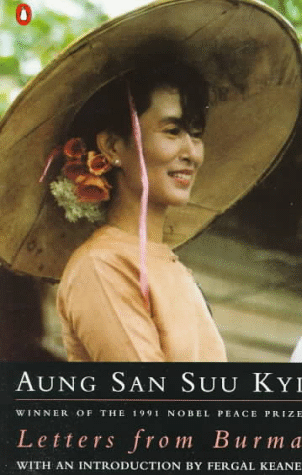 |
- Letters from Burma (1998) by Aung San Suu Kyi
- To order: Amazon Books
- Book description from Amazon.com: Human-rights activist and leader of Burma's National League for Democracy, Aung San Suu Kyi was sentenced to six years' house arrest in Rangoon in 1989 by the ruling military junta SLORC. She paints a vivid, poignant yet optimistic picture of her native land in this collection of writings from her imprisonment. Aung San Suu Kyi won the 1991 Nobel Peace Prize and the Sakharov
Prize for Freedom of Thought.
|
- Long Walk to Freedom : The Autobiography of Nelson Mandela by Nelson Mandela
- To order: Amazon Books
- Book Description from Amazon.com - The famously taciturn South African president reveals much of himself in Long Walk to
Freedom. A good deal of this autobiography was written secretly while Mandela was imprisoned for 27 years on Robben Island by South Africa's apartheid regime. Among the book's interesting revelations is Mandela's ambivalence toward his lifetime of devotion to public works. It cost him two marriages and kept him distant from a family life he might otherwise have cherished. Long Walk to Freedom also discloses a strong and generous spirit that refused to be broken under the most trying circumstances--a spirit in which just about everybody can find something to admire.
|
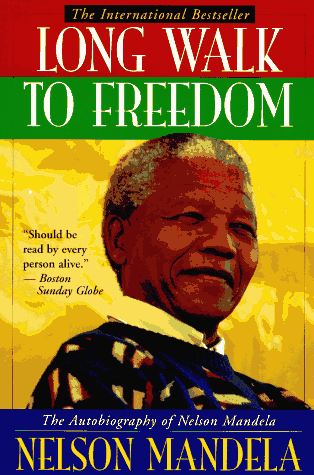 |
- A Little Matter of Genocide : Holocaust and Denial in the Americas,
1492 to the Present by Ward Churchill
- To order: Amazon Books
- Excerpt of review by A. Clare Brandabur - The purpose of this book is to achieve an understanding of genocide which will enable the global human community to call past genocides by their right names, to stop genocides now in progress and to prevent future genocides. Starting from the staggering facts of the genocide, still in progress, against his own Native American people, Churchill relates the history of genocide and the struggle for a definition of the term sufficiently accurate and comprehensive, to prevent the watering down of the concept, and to cut through the misleading rhetoric which now obfuscates debate, thereby permitting this and other genocides to continue:
|
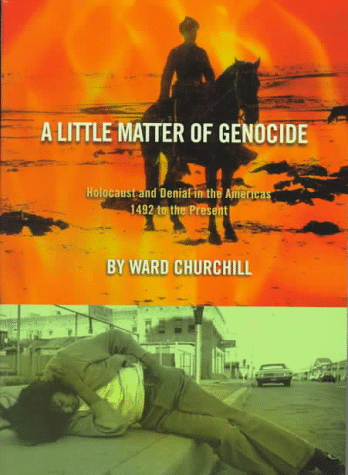 |
 |
And for those long, hot, lazy days of August!- Tennessee Williams : Four Plays : Summer and Smoke/Orpheus Descending/Suddenly Last Summer/Period of Adjustment/4 Plays in 1 Book (1998) by Tennessee Williams
- To order: Amazon Books
- This anthology contains four of the Pulitzer Prize-winning playwright's most brilliant works: Summer and Smoke, Orpheus Descending, Suddenly Last Summer and Period of Adjustment. "The innocent and the damned, the lonely and the frustrated, the hopeful and the hopeless . . . (Williams) brings them all into focus with an earthy, irreverently comic passion."--Newsweek.
|
Recommended Book of the Month - Books for March & April 2000
The Autobiography of a Tibetan Monk (1997). Palden Gyatso
To order: Amazon Books
Book description from Amazon.com: If you've ever wondered what it's like to walk in the shoes of a Tibetan monk, you're in for a shocker. Palden Gyatso followed his heart into the monastery at the age of 10 to study under his uncle, also a monk. By his mid-20s, when he should have been preparing for a higher degree, he instead found himself behind the bars of a Chinese communist prison. For the next 30 years, he would endure interrogations, deprivation, starvation, beatings, and psychological torture. When he was finally released in 1992, he fled the country, managing to smuggle out not only the names of his fellow prisoners but Chinese instruments of torture to show the world.
With the help of translator Tsering Shakya, Palden Gyatso has crafted his story into a fluid yet surprisingly dispassionate account of his time in prison. Still, it is almost impossible not to be swept along on waves of pity, horror, and compassion as he suffers unspeakably at the hands of his tormentors. To understand the plight of one Tibetan monk is to step behind the eyes of an entire people. --Brian Bruya
- Snow Falling on Cedars by David Guterson
- To order: Amazon Books
- Book Description from Amazon.com - This is the kind of book where you can smell and hear and see the fictional world the writer has created, so palpably does the atmosphere come through. Set on an island in the straits north of Puget Sound, in Washington, where everyone is either a fisherman or a berry farmer, the story is nominally about a murder trial. But since it's set in the 1950s, lingering memories of World War II, internment camps and racism helps fuel suspicion of a Japanese-American fisherman, a lifelong resident of the islands. It's a great story, but the primary pleasure of the book is
Guterson's renderings of the people and the place. .
Recommended Book of the Month - Books for January & February 2000
- Voices from S-21 : Terror and History in Pol Pot's Secret Prison (1997). David Chandler
- To order: Amazon Books
- Book description from Amazon.com: The horrific torture and execution of hundreds of thousands of Cambodians by Pol Pot's Khmer Rouge during the 1970s is one of the century's major human disasters. David Chandler, a world-renowned historian of Cambodia, examines the Khmer Rouge phenomenon by focusing on one of its key institutions, the secret prison outside Phnom Penh known by the code name "S-21." The facility was an interrogation center where more than 14,000 "enemies" were questioned, tortured, and made to confess to counterrevolutionary crimes. Fewer than a dozen prisoners left S-21 alive.
Documenting the violence and terror that took place within S-21 is only part of Chandler's story. Equally important is his attempt to understand what happened there in terms that might be useful to survivors, historians, and the rest of us. Chandler discusses the "culture of obedience" and its attendant dehumanization, citing parallels between the Khmer Rouge executions and the Moscow Show Trails of the 1930s, Nazi genocide, Indonesian massacres in 1965-66, the Argentine military's use of torture in *the 1970s, and the recent mass killings in Bosnia and Rwanda.
- Woman on the Edge of Time by Marge Piercy
- To order: Amazon Books
- Book Description from Amazon.com - Connie Ramos, a woman in her mid-thirties, has been declared insane. But Connie is overwhelmingly sane, merely tuned to the future, and able to communicate with the year 2137. As her doctors persuade her to agree to an operation, Connie struggles to force herself to listen to the future and its lessons for today....
Recommended Book of the Month - Books for November & December 1999
- Ama Adhe, the Voice That Remembers : The Heroic Story of a Woman's Fight to Free Tibet (1997). Ama Adhe as told to Joy Blakeslee
- To order: Amazon Books
|
- The Eye of the Heron by Ursula Le Guin
- To order: Amazon Books
|
Recommended Book of the Month - Book for September & October 1999
- Funu: The Unfinished Saga of East Timor (1987). by Jose Ramos Horta
- To order: Amazon Books
|
Recommended Book of the Month - Books for July & August 1999
- Between Vengeance and Forgiveness : Facing History After Genocide and Mass Violence (1998). by Martha Minow
- To order: Amazon Books
- A Pale View of Hills by Kazuo Ishiguro
- To order: Amazon Books
Recommended Book of the Month - Books for May & June 1999
- Disposable People: New Slavery in the Global Economy (1999). by Kevin Bales
- To order: Amazon Books
- China Mountain Zhang by Maureen F. McHugh
- To order: Amazon Books
Recommended Book of the Month - Books for March - April 1999
- Century of Genocide : Eyewitness Accounts and Critical Views (1998). by Samuel Totten , William S. Parsons, Israel W. Charny (Editors)
- To order: Amazon Books
- Kirinyaga : A Fable of Utopia by Michael Resnick,
- To order: Amazon Books
Recommended Book of the Month - Books for January/February 1999
- We Wish to Inform You That Tomorrow We
Will be Killed With Our Families: Stories from Rwanda (1998). by Philip Gourevitch
- To order: Amazon Books
- Herland by Charlotte Perkins Stetson Gilman,
- To order: Amazon Books
Recommended Book of the Month - Books for December 1998
- The Courage to Stand Alone: Letters from Prison and Other Writings (1998). by Wei Jiugsheng
- To order: Amazon Books
- Heart Mountain (1996) by Gretel Ehrlich
- To order:Amazon Books
Recommended Book of the Month - Books for October/November 1998
- Across Boundaries : The Journey of a South African Woman Leader (1998). by Mamphela Ramphele
- To order: Amazon Books
Recommended Book of the Month - Books for September 1998
- Island: Poetry and History of Chinese Immigrants on Angel Island, 1910-1940 (1998). by Him Mark Lai, Genny Lim, and Judy Yung
- To order: Amazon Books
- Star Trek on the Brain: Alien Minds, Human Minds (1996) by Robert Sekuler and Randolph Blake
- To order:Amazon Books
Recommended Book of the Month - Books for August 1998
In Memory of Bashorun Moshood Abiola (1937 - 1998)
- The Open Sore of a Continent: A Personal Narrative of the Nigerian Crisis (1996) by Wole Soyinka
- To order:Amazon Books
- Hotel Bolivia: The Culture of Memory in a Refuge from Nazism (1998). by Leo Spitzer
- To order: Amazon Books
Recommended Book of the Month - Books for July 1998
- Children of Cambodia's Killing Fields : Memoirs by Survivors (1997). Edited by Dith Pran
- To order:Amazon Books
- Available at the Webster-Eden Library
- Dead Season : A Story of Murder and Revenge on the Phillipine Island of Negros
(1996). by Alan Berlow
- To order: Amazon Books
Recommended Book of the Month - Books for June 1998
- Troublemaker: One Man's Crusade Against China's Cruelty (1996). by Harry Wu with George Vecsey
- To order: Amazon Books
- Because it is bitter and because it is my heart (1996). by Joyce Carol Oates.
- To order: Amazon Books
- Lucifer's Hammer (1996). by Larry Niven and Jerry Pournelle
- To order: Amazon Books
Recommended Book for May 1998
- Aung San Suu Kyi: The voice of hope - Conversations with Alan Clements (1997). New York: Seven Stories Press.
- To order: Amazon Books














 Send me your thoughts
Send me your thoughts Back to Woolf Home Page
Back to Woolf Home Page